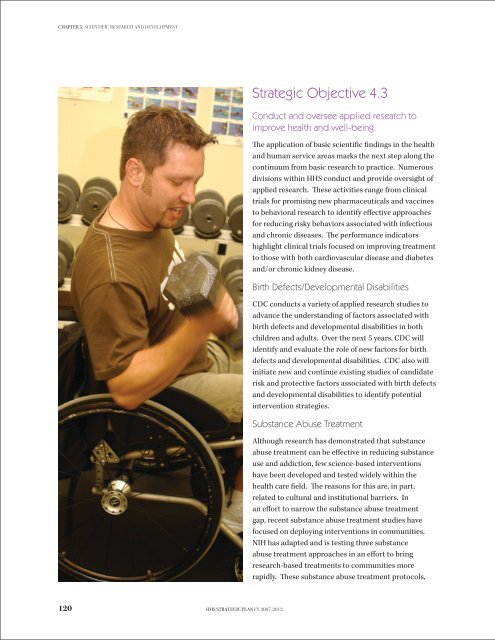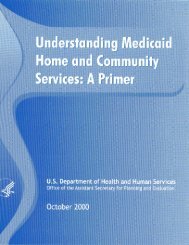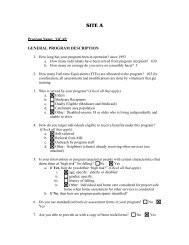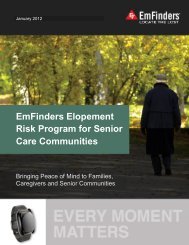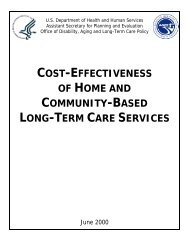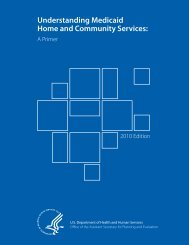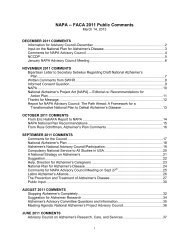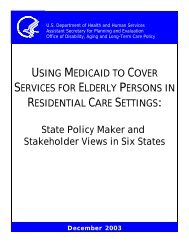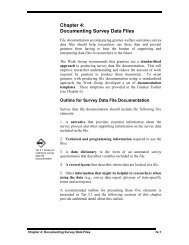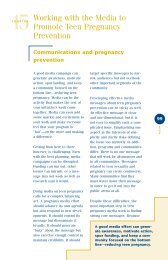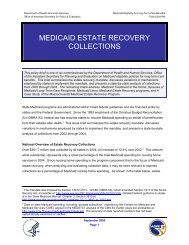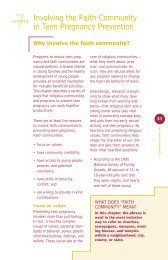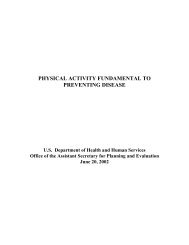STRATEGIC PLAN - ASPE - U.S. Department of Health and Human ...
STRATEGIC PLAN - ASPE - U.S. Department of Health and Human ...
STRATEGIC PLAN - ASPE - U.S. Department of Health and Human ...
Create successful ePaper yourself
Turn your PDF publications into a flip-book with our unique Google optimized e-Paper software.
CHAPTER 5: Scientific Research <strong>and</strong> DevelopmentStrategic Objective 4.3Conduct <strong>and</strong> oversee applied research toimprove health <strong>and</strong> well-being.The application <strong>of</strong> basic scientific findings in the health<strong>and</strong> human service areas marks the next step along thecontinuum from basic research to practice. Numerousdivisions within HHS conduct <strong>and</strong> provide oversight <strong>of</strong>applied research. These activities range from clinicaltrials for promising new pharmaceuticals <strong>and</strong> vaccinesto behavioral research to identify effective approachesfor reducing risky behaviors associated with infectious<strong>and</strong> chronic diseases. The performance indicatorshighlight clinical trials focused on improving treatmentto those with both cardiovascular disease <strong>and</strong> diabetes<strong>and</strong>/or chronic kidney disease.Birth Defects/Developmental DisabilitiesCDC conducts a variety <strong>of</strong> applied research studies toadvance the underst<strong>and</strong>ing <strong>of</strong> factors associated withbirth defects <strong>and</strong> developmental disabilities in bothchildren <strong>and</strong> adults. Over the next 5 years, CDC willidentify <strong>and</strong> evaluate the role <strong>of</strong> new factors for birthdefects <strong>and</strong> developmental disabilities. CDC also willinitiate new <strong>and</strong> continue existing studies <strong>of</strong> c<strong>and</strong>idaterisk <strong>and</strong> protective factors associated with birth defects<strong>and</strong> developmental disabilities to identify potentialintervention strategies.Substance Abuse TreatmentAlthough research has demonstrated that substanceabuse treatment can be effective in reducing substanceuse <strong>and</strong> addiction, few science-based interventionshave been developed <strong>and</strong> tested widely within thehealth care field. The reasons for this are, in part,related to cultural <strong>and</strong> institutional barriers. Inan effort to narrow the substance abuse treatmentgap, recent substance abuse treatment studies havefocused on deploying interventions in communities.NIH has adapted <strong>and</strong> is testing three substanceabuse treatment approaches in an effort to bringresearch-based treatments to communities morerapidly. These substance abuse treatment protocols,120 HHS Strategic Plan FY 2007-2012


